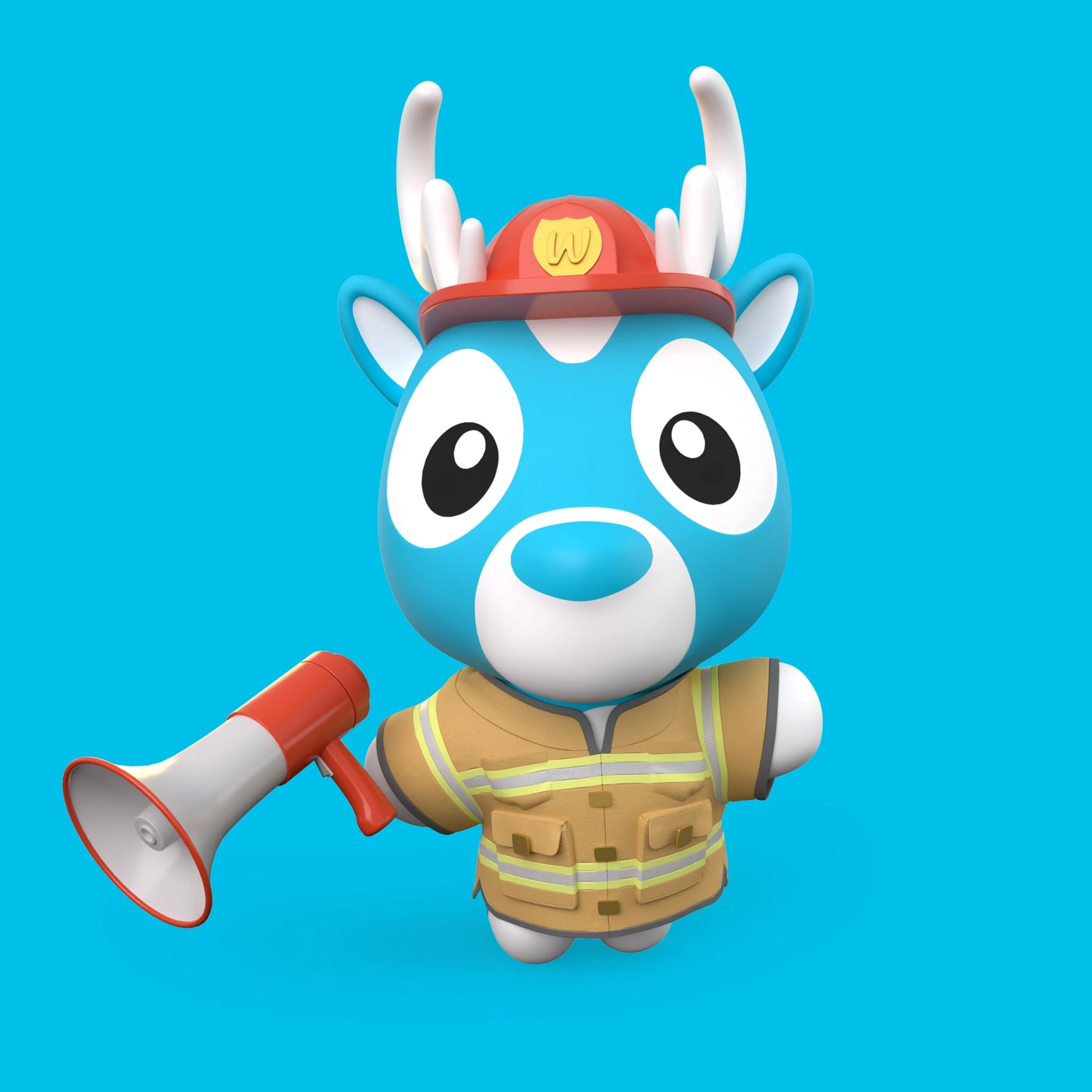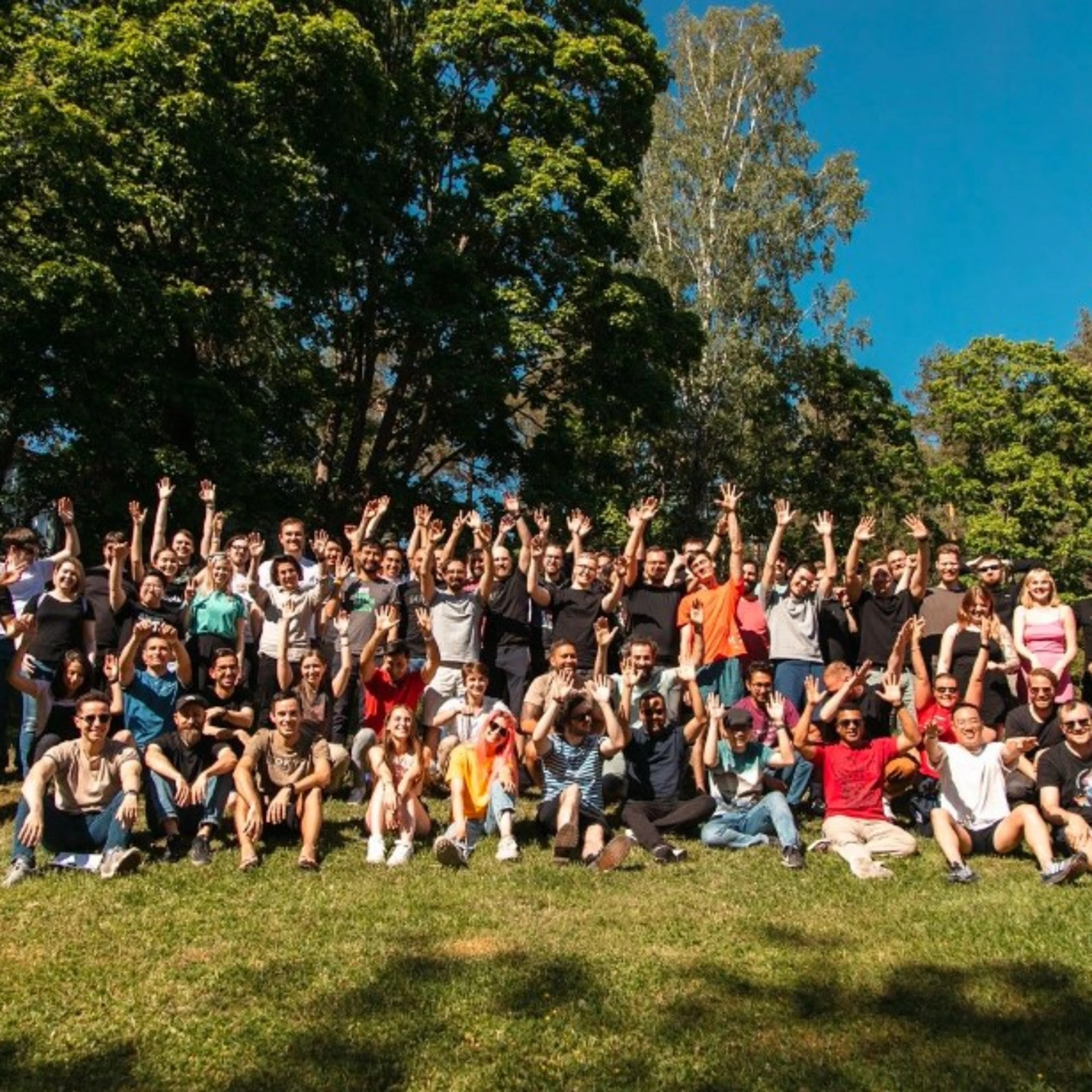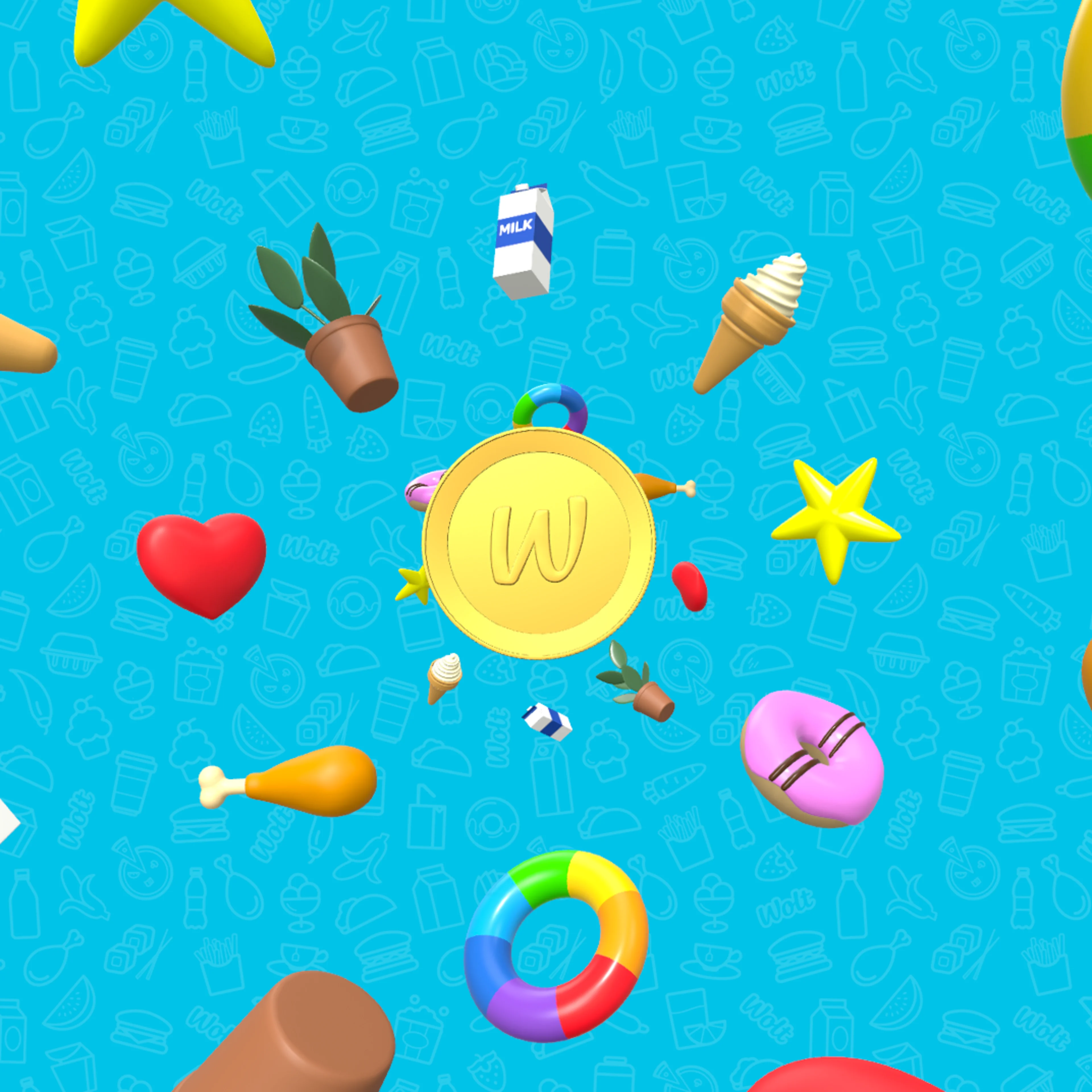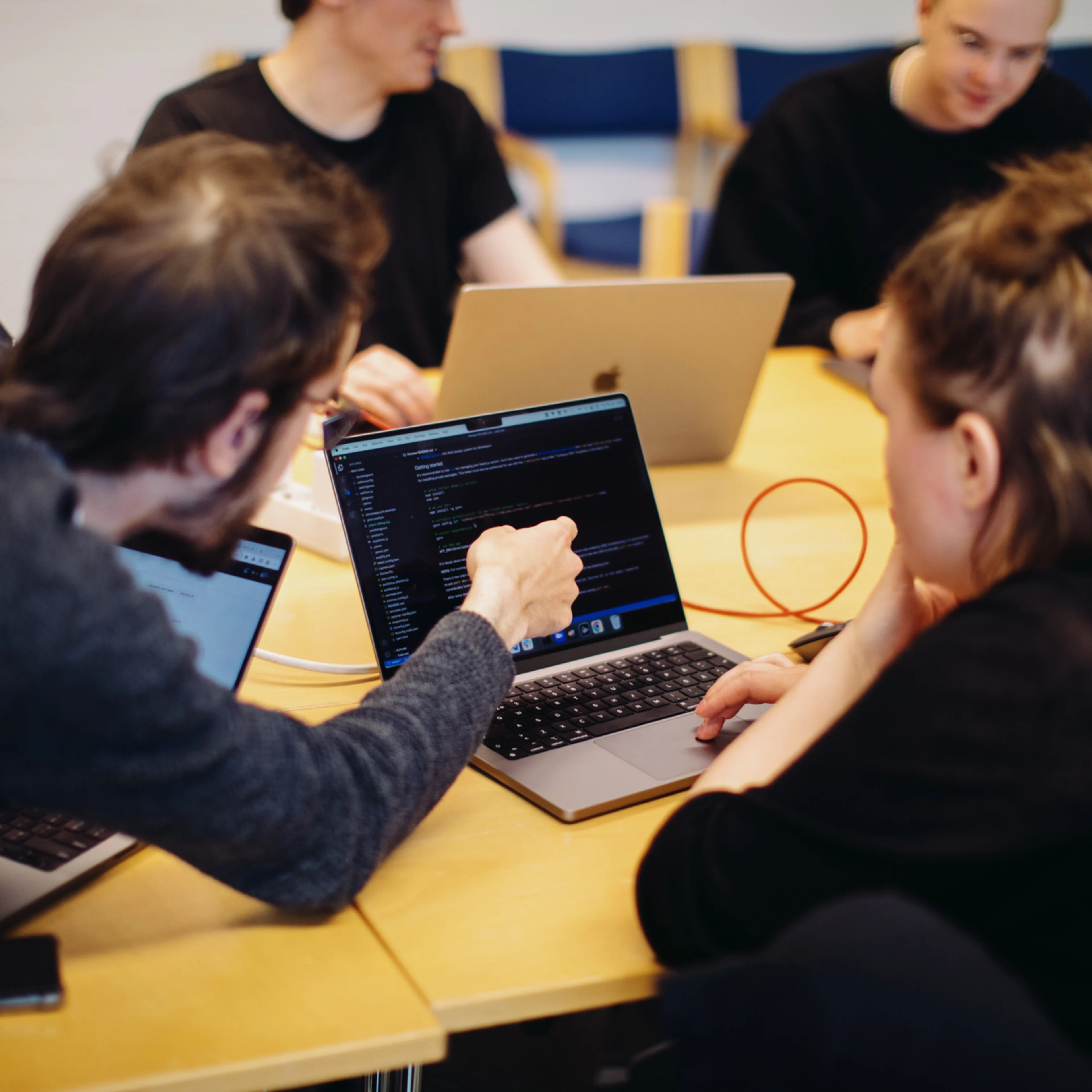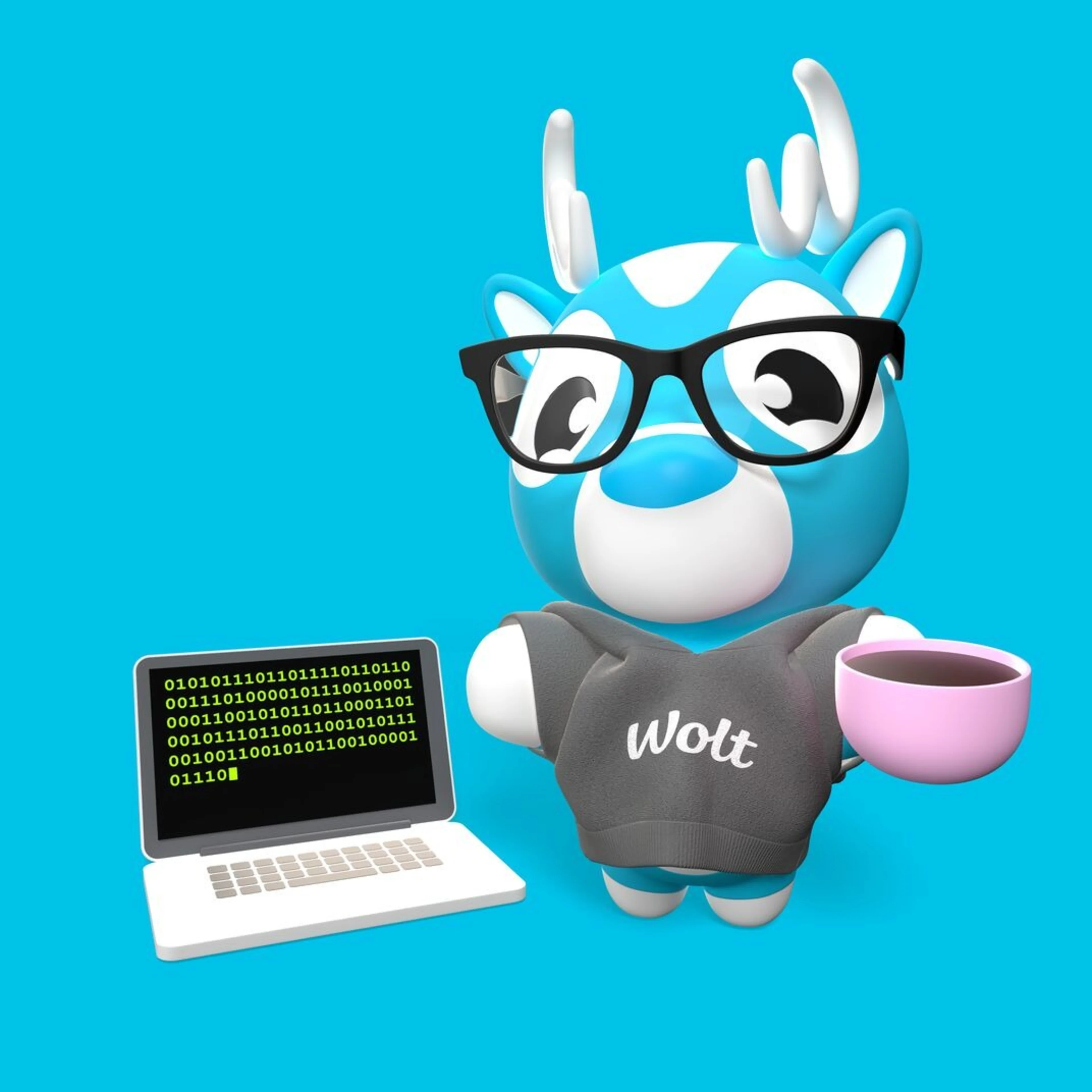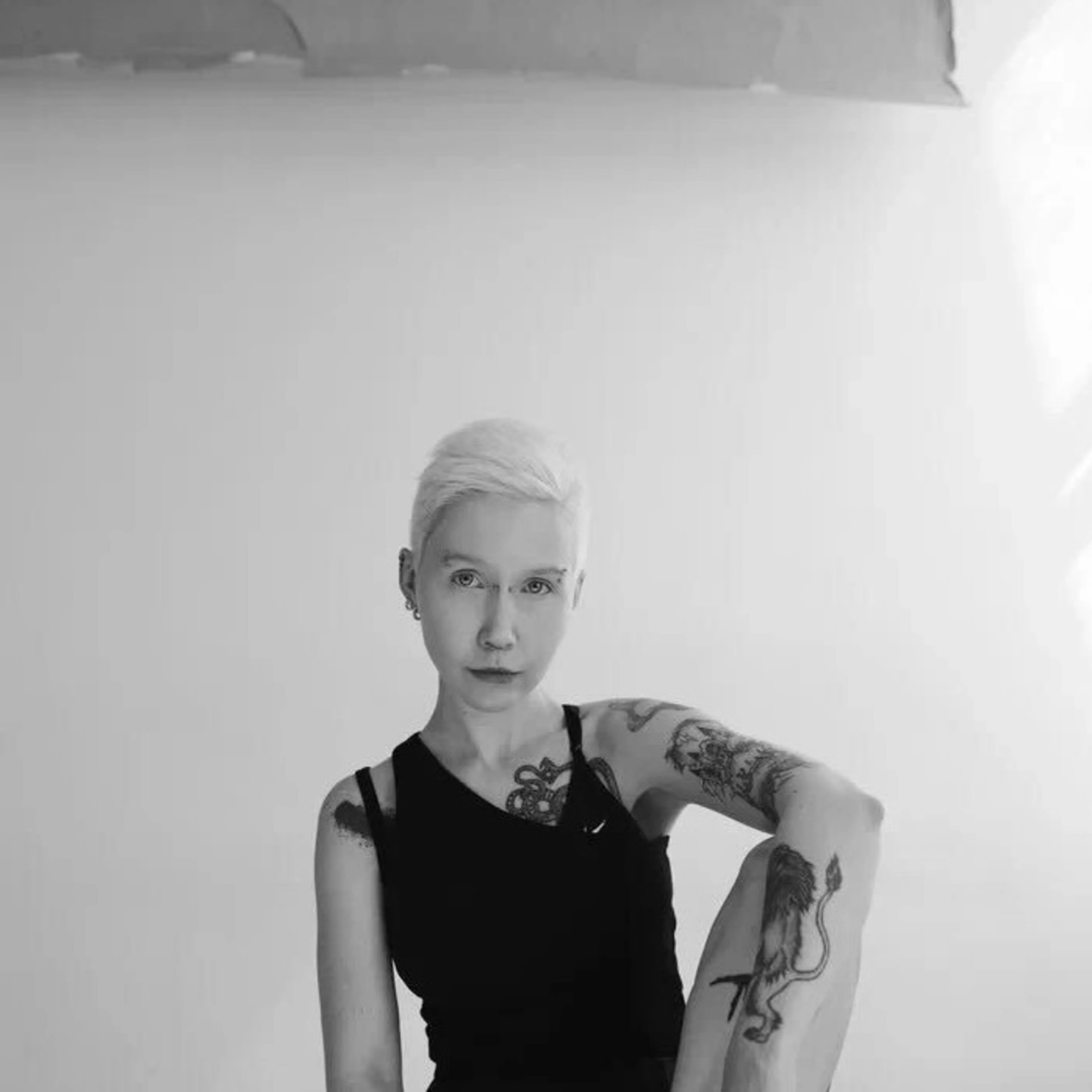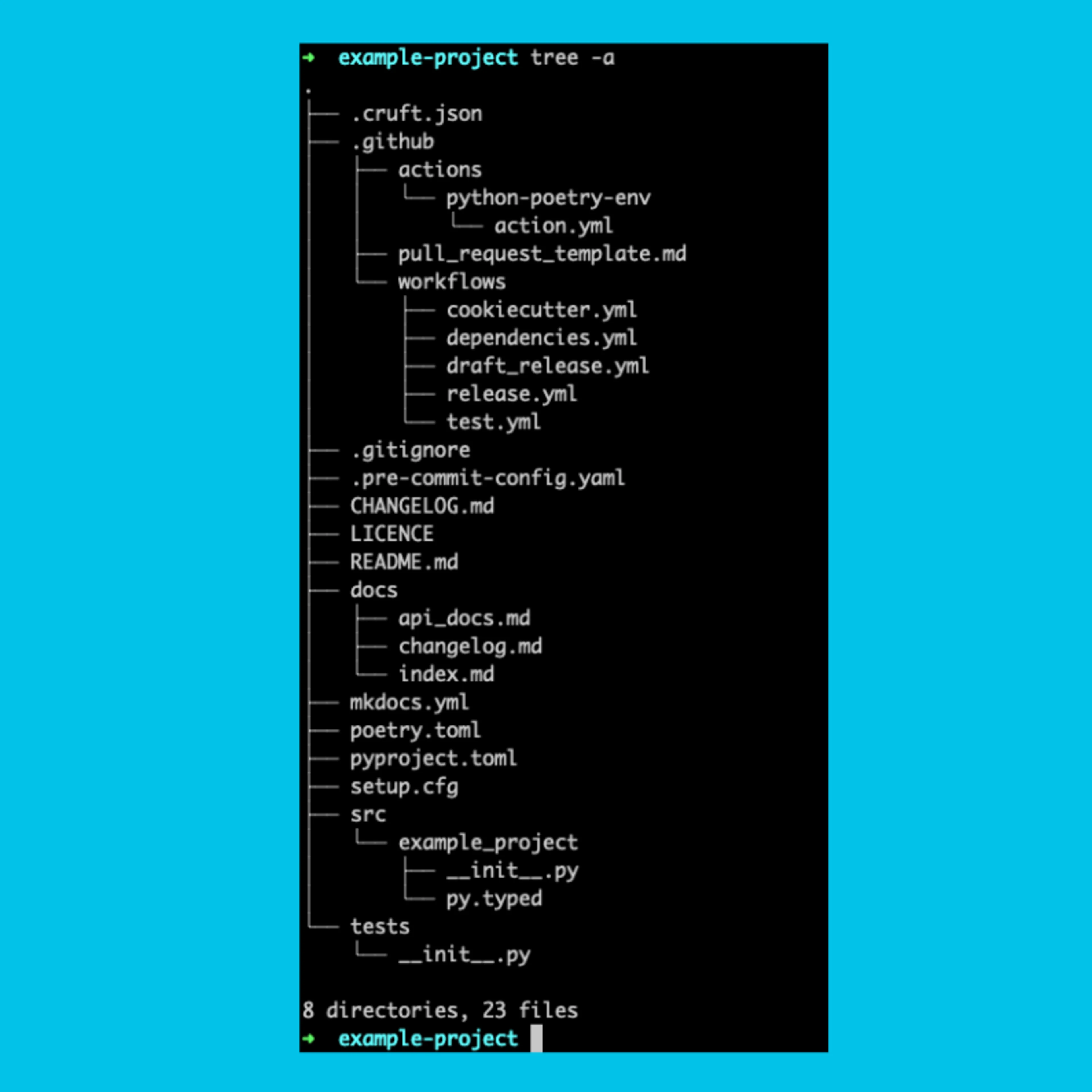Tech
Oct 10, 2024
From Passion to Profession: Journey of a Junior Engineer
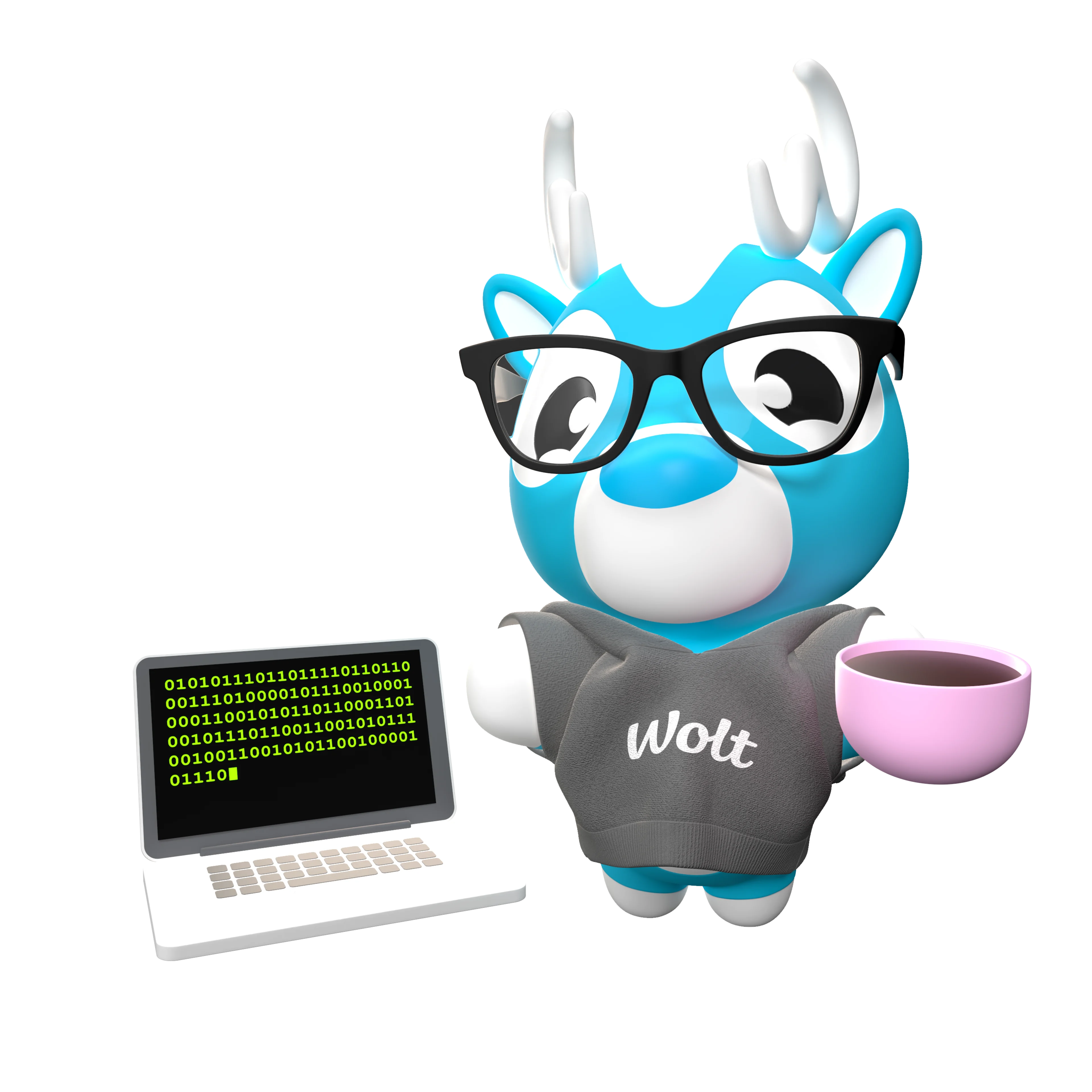
What does it mean to be a junior engineer and how do you become one? To get the best answers, we sat down with Yunus and Sabina—two talented engineers who joined us through our Junior Software Engineering Program. The program is designed to help new engineers to dive into real-world projects, learn from experienced mentors, and grow together with Wolt. So Yunus and Sabina shared about what sparked their interest in tech, talked about their experience at Wolt, and gave some valuable tips for anyone thinking of following a similar path.
Whether you're curious about life at Wolt or looking for advice on starting your career in software development, their stories are sure to inspire!
Hello 👋 What is your name and what do you do at Wolt?

Yunus: Hi, I’m Yunus and I work as a software engineer in the Order Operations team at Wolt. Our team is responsible for developing the Merchant App, which is built using Flutter.
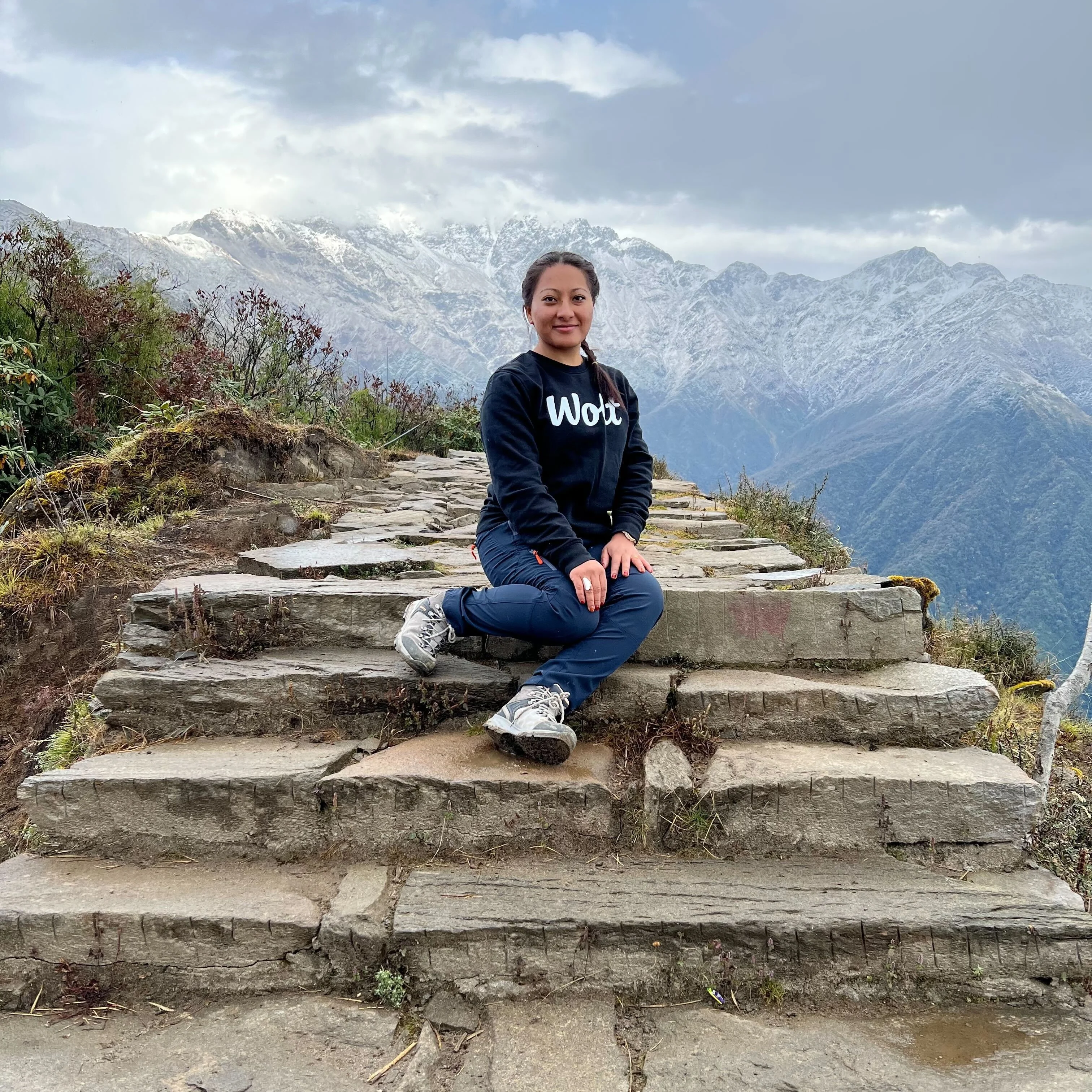
Sabina: Hi, I’m Sabina, I work as a software engineer at Wolt and I help shape the future of retail technology working in the Retail Platforms team.
What made you join the junior engineering program in 2021 at Wolt?
Yunus: I'm quite particular about food, and you might be wondering how that's relevant. 😀Well, here's the connection - I downloaded the Wolt app for the first time and was really impressed by the user experience. As I browsed through different restaurants and venues, I appreciated that most items had images, which helped me decide if it was something I might enjoy. I also recognized the challenge of maintaining such extensive image coverage at scale, which made me admire the app even more. That was my first impression of Wolt, and when I saw the job posting, I knew I had to apply.
Sabina: Before I worked as a software developer at an accounting company where I gained my first experience in software development. While the people were great and supportive, I felt something was missing. I craved a tech-driven culture that focused on building top-class solutions and delivering the best customer experience. Back in 2021 when I heard about Wolt's Junior Software Engineer Programme, it seemed like the perfect opportunity to learn from experienced professionals, develop my skills, and be part of an exciting company that was rapidly making its mark in Finland and beyond. After finding out more about Wolt's culture and people, I decided to apply, went through the hiring process and eventually got started as a junior engineer.

How did you start your career in software development?
Yunus: I graduated with a degree in Electronics Engineering and initially focused on embedded systems. After spending some time working with embedded development projects, I realized that while it was interesting, I wanted to explore higher-level programming languages. However, I didn’t have much experience in that area, so I decided to start with test engineering. It turned out that I also really enjoyed testing, spotting, and debugging issues. 😀 I spent five years as a test and automation engineer, and then with Wolt, I transitioned into software engineering.
Sabina: My career in software development began in a pretty unconventional way. My study and early career background is in hospitality management. But after some timeI realized I needed a change—something fresh and exciting to spark my motivation and keep me energized. So I started attending various startup events in Helsinki out of curiosity. I enjoyed meeting people who were passionate about solving real-life problems and creating solutions. The developers seemed to possess a kind of magic—the ability to bring ideas to life. Wow, I wanted that superpower too!
Honestly, I had never envisioned myself in the IT industry, maybe it was because I hadn’t met anyone back home discussing that career path. But those startup events lit a spark in me, giving me the encouragement to give it a try. I told myself there was really nothing to lose: if I enjoyed software development, fantastic! If not, that was okay too. At the very least, I would gain some valuable experience and knowledge.
So, I did some research, took a leap of faith, and enrolled in an intensive boot camp. It was a challenging yet unforgettable journey, and I was amazed at how much we could learn in such a short time. After completing the boot camp, I began searching for a job to gain hands-on experience—and the rest is history!
What is it like to work at Wolt as a junior software engineer?
Yunus: While working as a test engineer, I had side projects where I used Java and Flutter, but I was the only one reviewing my code. I remember saying during the interview, "I write some code, but I don't know how good or bad it is—I need someone to review it and guide me." At Wolt, I’ve received exactly that kind of support and mentorship. We have thoughtful discussions about how we write code and share ideas, which has helped me grow significantly. We even started holding weekly meetings to continuously improve our way of working. My team also showed their trust in me by assigning big features, which has pushed me to learn and grow through real challenges.
Sabina: I love the culture here. People are passionate, we have a great sense of ownership, and there is full trust among team members. I remember having a really smooth onboarding process and I had a buddy assigned to me who helped understand our tooling, the technology we are using, and the software practices we follow to keep our codebases clean and readable. I started with something small to get a hang of our project, understand the architecture, and slowly began taking full responsibility for building solutions end-to-end. When the people you work with are open and have a heart to teach and share their knowledge, things become much easier and you feel less intimidated. I was also lucky to have a supportive team lead and an onboarding buddy! I received enough responsibilities to feel challenged and learn new things while maintaining the right balance between learning, development, and taking on responsibilities.
Biggest learnings working as a junior software engineer
Yunus: Starting as a junior and growing over time has been an incredibly rewarding experience - I truly enjoy every moment of it. Every day presents something new to learn, whether it’s a technical skill or a soft skill, and the feeling of making an impact is priceless. My biggest takeaway so far is the importance of "doing what you love." When you pursue what you're passionate about, it brings both happiness and fulfillment.
Sabina: One of my biggest learnings so far is to not compare yourself with others, only to your past self. Everyone has a unique background, and it’s important to remember that nobody knows everything. It’s fine to say "I don’t know," but always add, "I don’t know it yet." What matters is your willingness to learn and grow.
I’ve also learned the importance of reflecting on your journey. It’s essential to take a step back and appreciate how far you’ve come and what you’ve achieved. Having a clear, written goal for the skills you want to develop is crucial. Prioritize that goal, work towards it, and stay curious. Ask questions! Your team is there to support you as much as you need, so never be afraid to seek help, explore new challenges, and embrace curiosity.
Tips & tricks for newbie engineers applying to a similar position
Sabina: Some of the things that come to mind are:
Highlight your real-world coding experience: Emphasize specific projects you’ve worked on, the technologies you used, and the challenges you overcame. This helps demonstrate your hands-on skills and problem-solving abilities and practical coding experiences.
Showcase collaboration: Engineering is a team effort, and so it’s important to know how to work well with others. Share examples of your collaboration, whether from previous work experiences or group projects in school.
Leverage transferable skills: If you're transitioning into software development from a different career, think about the transferable skills you can bring with you. For example, organizational skills, cross-functional collaboration, and even people skills are valuable in tech.
Follow instructions carefully on coding assignments: When completing assignments, make sure to follow the instructions precisely. Double-check that all the requirements are met, and don’t forget to write tests. Testing is a critical part of maintaining software quality, so think about potential edge cases that should be covered.
Explain your decision-making process: If you were to make decisions between different solutions during your assignment, consider writing a short memo to discuss the pros and cons of your choices and the reasoning behind your decision. Not only, this is interesting to read, this also gives reviewers insight into your problem-solving approach and how you think through challenges.
Yunus: Even if you already have some experience as a software engineer, I recommend working on small personal projects. Programming can be quite abstract, and even concepts you think you understand may not fully click until you sit down and write the code. This hands-on experience will also help you feel more prepared for interviews. Additionally, I’ve noticed that companies place great value on a candidate's eagerness to learn when hiring junior engineers. It’s important to highlight and demonstrate this enthusiasm during the interview. Focusing on these two things—personal projects and showing your willingness to learn—can significantly boost your chances. Good luck! 🤞

